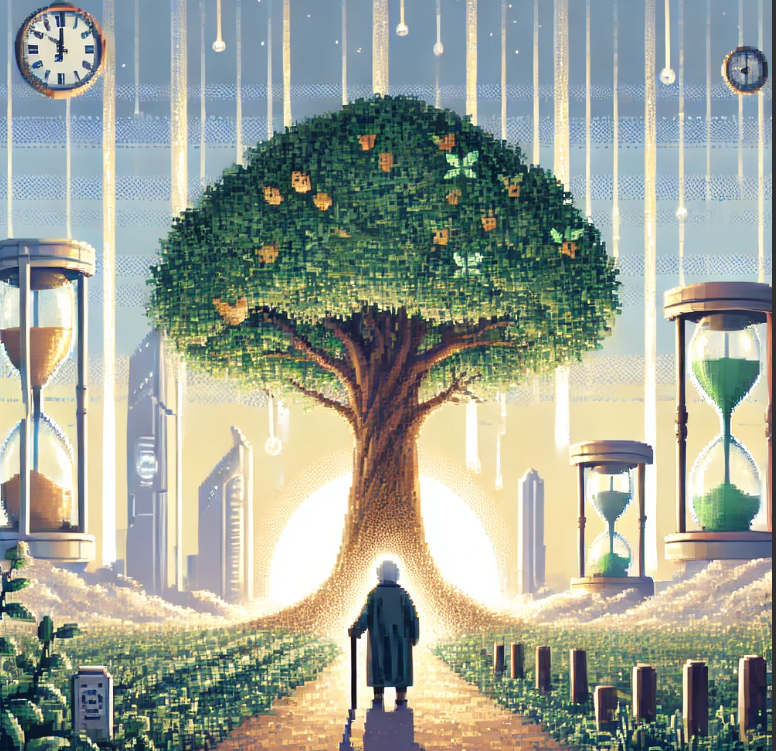
You will not be 100
Imagine a future where people regularly live to be 120 or even 150. Wouldn’t that be something? For many years, scientists, futurists, and everyday people alike have pondered whether such extraordinary life spans could soon become a reality. With advances in public health, medicine, and technology, it’s tempting to believe that we’re on the cusp of unlocking the secret to radical life extension. However, according to recent research, our hopes of living dramatically longer might be more science fiction than fact.
In this blog, we’ll explore what the latest study says about the future of human longevity, how we’ve managed to live longer in the past century, and what this all means for us today.
The Longevity Revolution: How We Got Here
Before the 20th century, life expectancy was dismally low. Most people didn’t live past their 40s and those that did often succumbed to infectious diseases or childbirth complications. But the 20th century sparked a “longevity revolution”—a time when life expectancy shot up dramatically due to medical advancements like antibiotics, vaccines, and better sanitation. By the end of the century, people in many high-income countries were living well into their 70s and 80s.
Yet, that remarkable progress seems to be slowing down. According to a study that examined data from the world’s longest-living populations, the gains in life expectancy since 1990 have been far more modest. In fact, the research suggests that we’re hitting a ceiling. While many of us are still living longer, the rate of improvement has decelerated, meaning we’re not adding as many years to our lives as quickly as we used to.
The Big Question: How Much Longer Can We Live?
The question scientists are grappling with now is simple: How much longer can humans live? The study examined populations from countries with the highest life expectancies, such as Japan, France, and South Korea, and found that we might not be pushing the boundaries of human life as far as some have predicted.
While some argue that radical life extension—adding decades or even centuries to our lives—is on the horizon, this study paints a different picture. Researchers found that life expectancy is not increasing as rapidly as before. In fact, they suggest that it’s unlikely for most people alive today to live to 100, let alone beyond.
A New Ceiling on Life Expectancy?
What does all this mean in practical terms? Well, if you were hoping for a world where most people easily live to 120, you might be disappointed. The study concludes that reaching extreme old age—like 100 years or more—is still going to be rare for most of us.
For example, the research showed that even in Hong Kong, which boasts one of the highest life expectancies, only about 13% of females and 4.5% of males are expected to reach 100 years old. That’s a far cry from the dream of everyone living to 100. The study suggests that unless we discover a way to slow down the biological process of aging, we might already be nearing the limits of human longevity.
The Science of Aging: Why We’re Stuck
So why are we hitting this ceiling? To understand this, we need to delve into the science of aging itself. Human bodies are incredibly complex, and aging is a natural process that affects every cell and organ over time. While advances in medicine have helped us combat diseases, we haven’t yet figured out how to stop the aging process itself.
Even more striking, the study found that the reductions in mortality rates needed to maintain an increase in life expectancy by just one year are becoming harder to achieve. This means that to add even a single year to our average life expectancy, we would need to drastically reduce death rates at every age—something that has proven nearly impossible in recent decades.
The Myth of Radical Life Extension
For years, there’s been excitement around the idea of radical life extension—the belief that medical breakthroughs, like genetic engineering or anti-aging drugs, could allow us to live far longer than we do today. Proponents of this idea often claim that most newborns today will live to 100 or beyond, but the data from this study challenges those claims.
In reality, the chances of living to 100 are still quite low for most people, even in the healthiest countries. The research found that survival rates to 100 remain under 15% for females and 5% for males in most of the world’s longest-living populations. So, while it’s not impossible for some to reach such a milestone, it’s certainly not the norm.
What’s Next? The Promise of Geroscience
While this might sound discouraging, it’s important to note that all hope is not lost. A new field of science called geroscience is gaining traction, and it focuses on slowing the biological aging process itself. If scientists can figure out how to slow down aging, we might yet see another wave of life expectancy gains. But that’s still a big “if.”
The study suggests that without breakthroughs in geroscience, we might have already seen the most significant increases in life expectancy. However, with continued research and innovation, there’s still potential for future generations to live longer and healthier lives.
Explore the data yourself: https://mortality.org/
Why This Matters Today
This research isn’t just about numbers; it’s about the real-world implications of aging and how we should plan for the future. For example, many industries, like life insurance and retirement planning, are built on assumptions about how long people will live. If we’re nearing the upper limits of human lifespan, these industries will need to adjust their models and expectations.
Furthermore, understanding the limits of human longevity can help inform public health policies. Instead of focusing solely on extending life, we might shift our attention toward improving the quality of life in old age—making those later years as healthy and fulfilling as possible.
Join the Conversation
Do you think we’re truly nearing the limits of human lifespan, or do you believe radical life extension is just around the corner? What role do you think geroscience could play in shaping the future of aging? Let us know in the comments below!
Feed Your Curiosity
Discover the latest scientific research and inspiring discoveries with ‘This Week in Science’! Perfect for educators and avid learners, our free weekly newsletter is a rich source of knowledge to enhance your teaching and learning journey. Subscribe now! If you liked this blog, please share it! Your referrals help This Week in Science reach new readers.



